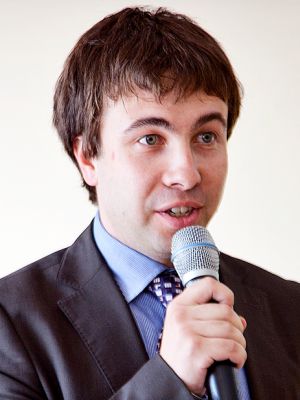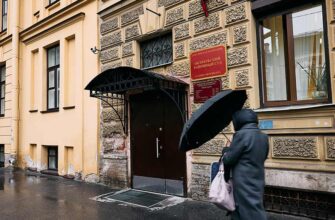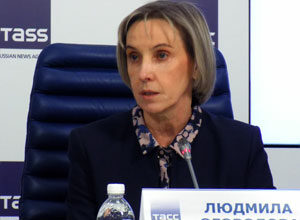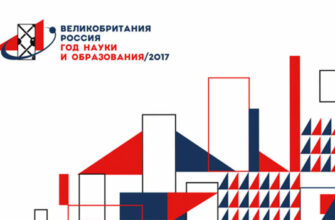More than 100 rectors participated on 06 October 2016 in the VI Forum of rectors of Russian and Japanese universities named “Universities and society: science and education in the modern world”. As a result of the forum documents expanding bilateral scientific cooperation were sciened as follows: Agreement between the Moscow State University named after M. V. Lomonosov and the University of Kobe Gakuin, a Memorandum of understanding and the Communiqué of the forum, including the future establishment of the Association of universities of Russia and Japan.
On the opening ceremony following persons had their speaches: rector of Moscow state University and the President of the Russian rectors ‘ Union, academician V. Sadovnichiy, President of Tohoku University Susumu Satomi and Minister-Counsellor, head of the information Department of the Embassy of Japan in the Russian Federation, Otsuki Kotaro.
Cultural-political magazine “E Vesti” addressed to the Russian Forum coordinator, Professor of Department of Psychology at Moscow state University, Ph. D. Alexander Rajewski, who clarified some aspects of our bilateral agreements and cooperation in General.
E Vesti: Alexander, please tell me how the Russian-Japanese forum was successful?
Alexander Rajewski: In my opinion, the event was successful. This is confirmed by the figures – this year came more Japanese and Russian participants. Thus, the Forum is becoming more and more popular among the rectors of both countries and allows them to better interact.
In 2016, at the initiative of the Japanese side, the Forum has become not just a representation of the universities, where they talk about themselves, but also the demonstration area of scientific knowledge. On this forum was a scientific part with scientific presentations of projects and developments.
The process of interaction of Universities is essentially a long, but the forum makes more practical. For example, a Memorandum was signed a joint master’s program between the faculties of Psychology of Moscow state University and human Sciences of Tohoku University, an agreement was signed with the University of Kobe Gakuin. The rector of the latter University came to the forum at MSU for the first time, but before that we conducted the first Russian-Japanese student summit with the University of Kobe and became already familiar, this allowed to sign a Treaty of friendship and student exchanges.
On the Forum there are new programs and partners, so, of course, this is a successful event.
EV: How precious is cooperation with Japan for the Russian scientific world (I mean the Japanese focus on innovation and their cultural attitudes on honesty with partners)?
Alexander Rajewski: Of course, if we talk about technology and innovation, the Japanese have no equal competitors. And if to speak about cultural and psychological component of this feature, in the character of Japanese people there is a lot of attention to the small things. Their eyes are focused not on the perception of a large, but on attention to the little things, the isolation of the individual element. If they start to investigate anything, they examine this question from different angles, and they are interested in science as a proper science, like the discovery of new scientific knowledge. Therefore, the Japanese demonstrate incredible accuracy on the level of subtle matter or nanoelements.
By the way, this applies not to accurate science only, but also to the Humanities. Once in Japan I saw a book-study on the topic “why the Japanese are so fond of admiring Sakura?”. The mentioned tradition was studied up to the smallest psychological nuances. The Japanese are very curious. It is very interesting and useful to cooperate in science with them.
If to speak about other qualities of the Japanese people, then you need certainly to mention honesty.
Also, if You want to start to cooperate with the Japanese, then you should be prepared for a slow start cooperation, from the first meeting you can’t gain partnership. They look narrowly to people, appreciate them in their Japanese criteria, but then to work with them is a pleasure. Everything will be in time, they will burn with the idea, try to do everything as best as possible and to promote the partnership.
EV: On what lines is now developing Russian-Japanese cooperation?
Alexander Rajewski: At the moment there is a General scientific cooperation and private too, like forums (medical, physical, IT, etc). Also the idea about a joint Russian-Japanese research centre hovers in the air. Even in one of the communiqué of our Forums such an idea was mentioned.
MSU is actively engaged in the establishment of technology valleys, and in projects it is planned to involve the Japanese.
EV: According to the agreements of the forum, what implied the joint master?
Alexander Rajewski: This implies the possibility for Russian students to go to the partner University and to spend a semester in collaboration with Japanese scientific leader on the subject of his scientific work. Upon his return, he receives a diploma of MSU and application about having course at a Japanese University with confirmation from their side.
Now there is a lot of talk about double diplomas. It’s hard to do, because of linguistic difference. A joint program is the first concrete step on the way to it, later it will be more interesting.
EV: What is behind the cooperation with the University of Kobe Gakuin?
Alexander Rajewski: With the University of Kobe Gakuin was signed a General cooperation agreement and an agreement on student exchanges and mutual short-term internships of students of Moscow state University and Kobe Gakuin respectively.
In my opinion, this is a great opportunity for our country to strengthen its influence. In 2014, MSU rector Viktor Sadovnichy for the first time during the conversation with Prime Minister of Japan, Shinzo Abe, had called 100 Japanese students to Moscow. This trip took place in March 2014, and the Japanese infiltrated our culture and understood that Russia is a great, important country. Those Japanese students who participated in this trip radically changed their attitude to our country for the better.
In my opinion, today both Russia and Japan come to the conclusion that the strengthening of our cooperation can greatly helps in the development of both countries, and ther is a tendency of this.





